Clancy Tucker's Blog, page 46
July 9, 2021
26 August 2021 - THE UK'S FIRST NEWSPAPER ARRIVES IN 1702
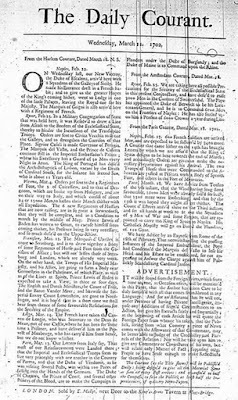 THE UK'S FIRST NEWSPAPER ARRIVES IN 1702
THE UK'S FIRST NEWSPAPER ARRIVES IN 1702G'day folks, The UK’s first daily newspaper hit the streets in March 1702. Called The Daily Courant, it owed its appearance to the fact that control of the Press by the Government had been abandoned some five years earlier. The Courant also owed its existence to a remarkable and determined woman – Elizabeth Mallet, the newspaper’s first proprietor and editor.
Virtually nothing is known about Mrs Mallet, other than that she was the widow of a printer. But she must have been a determined and intelligent person. Knowing that publication by a woman would not only raise eyebrows but probably cause a significant boycott of the paper, she named the publisher simply as “E. Mallet”, leaving readers to assume that "E" was male.
There has been conjecture over the years that “E. Mallet” was in fact a man – Edward – but the broad consensus is that Elizabeth was the person behind the enterprise.
The Daily Courant consisted of a single page divided into two columns with advertisements on the back and a focus almost exclusively on foreign news. The name came from the phrase ‘au courant,’ meaning to be up to-date and well informed.
In sharp contrast to today’s media, it pledged to “give news daily and impartially” and allow readers to make up their own opinions. “Nor will [the Editor] take it upon himself to give any Comments or Conjectures of his own, but will relate only Matter of Fact; supposing other People to have Sense enough to make Reflections for themselves.”
Satisfyingly, the paper was published from premises on Fleet Street. This famous London thoroughfare had been the printing industry’s centre since William Caxton’s contemporary Wynkyn de Worde set up business there in 1500.
The Courant’s offices stood beside the Kings Arms public house on Fleet Bridge, and were described as being located “against the Ditch at Fleet Bridge.” The Times was to be published from a nearby spot some two centuries later.
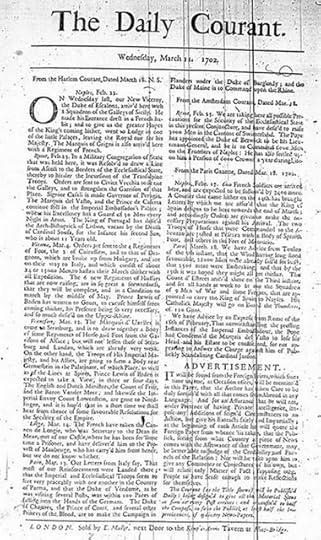
The Daily Courant could not have appeared much earlier than it did because of Government controls on the Press.
The Licensing of the Press Act – more fully described as “the Act for Preventing the frequent Abuses in Printing Seditious, Treasonable and Unlicensed Books and Pamphlets; and for the Regulating of Printing and Printing Presses” – was introduced in 1662. It was brought in as a temporary measure ahead of a stronger Act for controlling the Press. It was renewed in 1663 and again in 1665.
In 1693 the Act was still in force but the House of Lords agreed to the House of Commons abolishing it if new legislation was introduced. However, the new Bill failed to get through the Commons in 1697 and after that tight controls on the Press were abandoned.
Remarkably, and for reasons unknown, Mallet decided after just forty days to sell the paper. So in 1703 The Daily Courant became the property of printer and bookseller Samuel Buckley. And it was under his stewardship that the paper first ran into trouble.
In 1712 it published an account of House of Commons business – an act strictly against the law. Parliament did not give journalists the right to publish details of its proceedings until 1771. Buckley had to pay a heavy fine for his transgression.
The Daily Courant continued to be printed until 1735 when Buckley merged it with his other newspaper, the Daily Gazetteer. The Courant’s name then disappeared, never to be seen again.

Clancy's comment: There ya go. Newspapers have since played a major part in our lives.
I'm ...

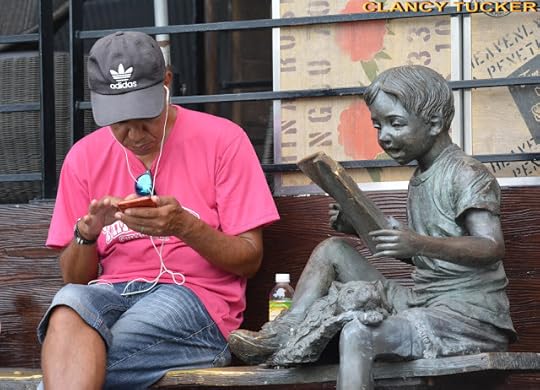
July 5, 2021
20 August 2021 - Kayakers Discover a 110-Year-Old Abandoned Ghost Ship

Kayakers Discover a 110-Year-Old
Abandoned Ghost Ship
G'day folks,
You’re out with your friends, who also enjoy kayaking. You decide to head out onto the Ohio River for a peaceful day out on the water, but then you discover something that you didn’t even know existed.
That’s what happened when these kayakers came across an abandoned ghost ship that was 110 years old. It was in a tributary just off the Ohio River. The photos are cool, but what’s more incredible is the history of this ship, and the things it has seen before its current resting place. Check these photos out.
As they got closer, they decided to get out and take a closer look. It turned out to be a very old ship. Even though it was very old, it was still strong enough to support them while they explored it. But after a little bit of research, this ship actually has quite the history. Not too long ago, it was used as a sight-seeing vessel in New York City.It was also used to fight in both World Wars.
Thomas Edison once used the ship for scientific experiments in communications technology. Then, in the late 1980s, the ship was taken out of commission, and transported to a tributary near land that belonged to the ship’s owner. It has rested there ever since.
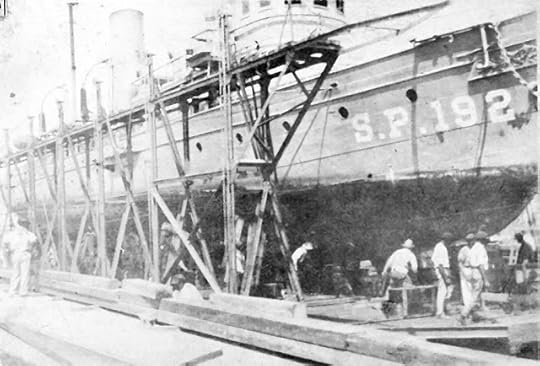
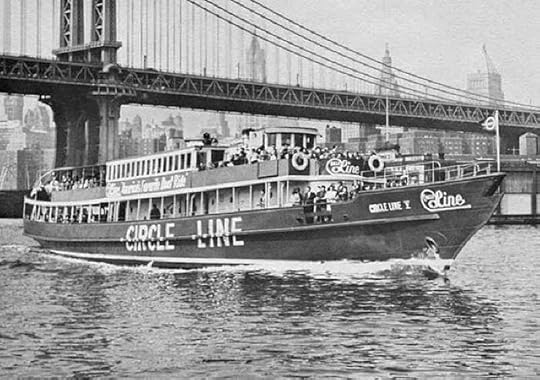


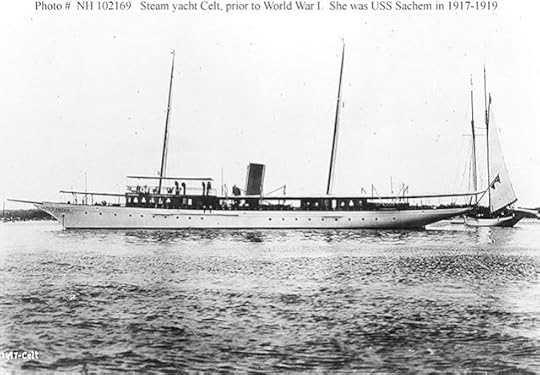
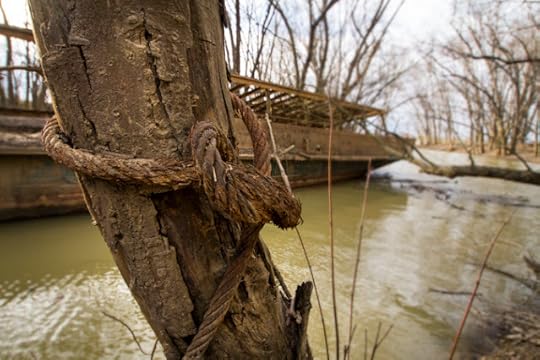

Clancy's comment: What a great old girl. She deserves to be at rest.
I'm ...


July 4, 2021
24 August 2021 - HAUNTING PHOTOGRAPHS OF ABANDONED BUILDINGS

HAUNTING PHOTOGRAPHS
OF ABANDONED BUILDINGS
G'day folks,
I find it so crazy that buildings can be left abandoned and uncared for. These abandoned places left me feeling a little sad, but they all gave me goosebumps. To think of what happened before they were abandoned, why they were abandoned, and what has happened since. These pictures are heartbreaking but beautiful at the same time. Check these from all over the globe.


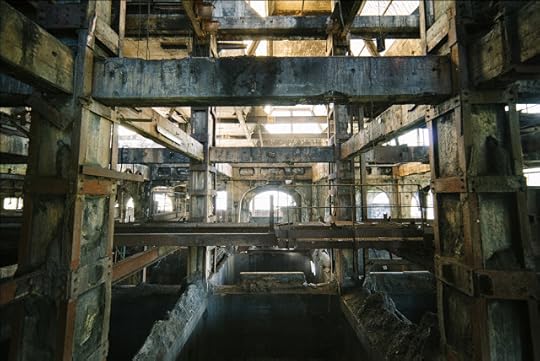
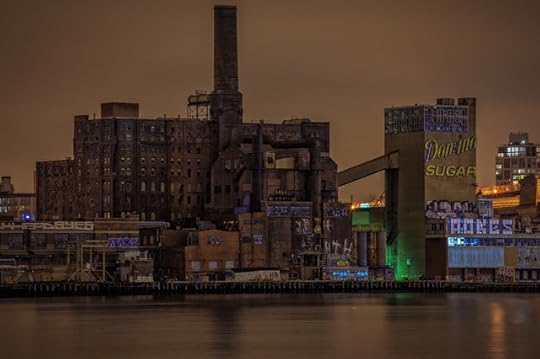




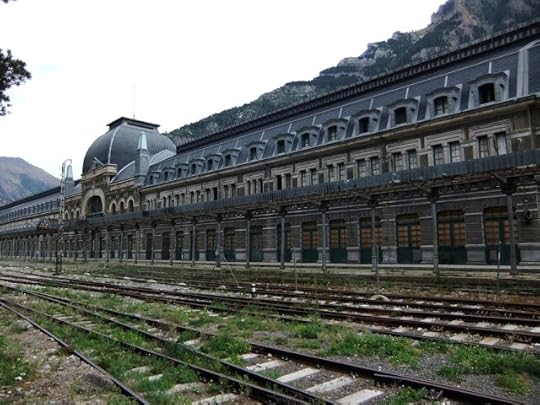

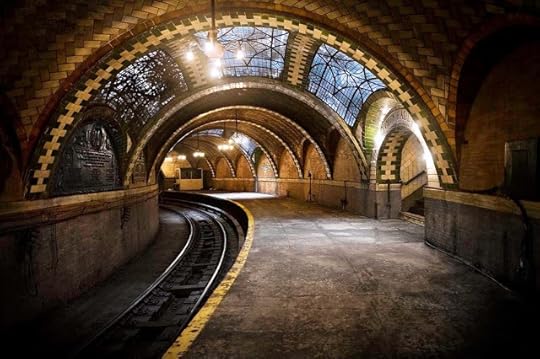





Clancy's comment: I also wondered who was involved in these places.
I'm ...


July 3, 2021
12 August 2021 - COVID 19 – TAKING A LONG HARD LOOK AT OURSELVES

COVID 19
– TAKING A LONG HARD
LOOK AT OURSELVES -
G'day folks,
Covid 19 has taken its toll on all of us, so I found these points and thought they were worth sharing. Hope they help.
Life is said to be too short, but most of us don’t feel it until we start nearing the end - only then do we really think about and regret our choices. Think about the following two questions: What was always your biggest dream, and did you realize that dream during your life?
If your answer to the second question is no, then we recommend that you review the following 13 signs and see if you are wasting your precious time. Once you learn to recognize the routines and customs that cause this, you can avoid them and start to fulfill your dreams actively and consciously.
1. You spend too much time doing things you don’t need to do.
Whether you sit every night and watch television for hours on end or spend your time in front of your computer skimming through a social network, you should start taking your life more seriously. Think about the way you choose to spend most of your free time and ask yourself if it somehow helps your life move forward and helps you become better - do your actions help you create a foundation for the future you want to live? If not, you probably need to re-evaluate your routine and make changes.
2. You complain too much.
Some people, without even knowing it, hate their lives, and they don’t stop sharing this fact with others. Do you think you’re like that? Do you complain about your boss, your salary, or your noisy neighbors? If so, you probably don’t do anything but project negative energy into your environment, and negativity doesn’t help anything, it just makes you stuck. Change the way you think, and talk to your friends about the things you love in life, not about the things that are bothering you.

3. You don’t feed your brain.
We don’t stop growing after puberty, and if you don’t continue to learn new things and improve your knowledge in old age, you will degenerate and stay stagnant, just like a still lake which becomes scummy - that's what happens to your brain if you don’t keep it active and teach it new things. Thought provoking challenges help you expand your knowledge and improve your thinking, so don’t avoid them even if learning something new seems like a difficult task - you have to be a little bad at first to get better.
4. You aren’t inspired.
Do you have a desire for something? There are many people who go to work every morning, go home, watch television and go to bed, and believe they have no passion for anything, but that's never the case. Each of us has something we enjoy doing which adds to our life, and you have to rediscover what excites you and put more of it into your life.
5. You have too many negative conversations with yourself.
Sometimes our thoughts can ruin our day. Henry Ford said, "Whether you think you can or you think you can’t - you're right," which means that if you tell yourself that you are too exhausted to make a difference in your life, you're right because that's what you decided. However, if you tell yourself you're smart and talented enough to get promoted or start your own business, you're also right. Whatever you tell yourself will become your reality, so be aware of your thoughts and adapt them to the life you want to live.

6. You’re not planning for the future.
While it is recommended for each of us to live in the moment, sometimes we have to look into the future and make sure we are on the path we need to be on. If you don’t have a goal or a plan of some sort, you’re like a sailor on a boat sailing the sea without a sail expecting to get to a good place, but chances are that that won’t happen. You have to create a plan of action which will help you reach your safe haven - just like choosing a destination on a GPS. Once you have a goal in mind, you’ll know which opportunities will take you to it.
7. You spend too much time with people who don’t contribute to your well-being.
It is very easy to get stuck with negative people who don’t help us feel that we are better people than we think we are. Sometimes, we even call these people friends, but it's important that you know that these people are pulling you down with them. People like this are sometimes called "energy vampires" because they draw the spirit of life from others and do not give anything positive in return. Instead of spending too much time with such people, identify the friends and acquaintances who make you feel proud and happy, and surround yourself with them.
8. You are addicted to your smartphone.
The smartphone is one of the most useful gadgets added to our lives in recent years, but you should be aware of the time you spend on it. Think about how the use of a smartphone affects your relationship in your home environment or while you're with friends; are you locked onto the screen at dinner with your family, or are you communicating with acquaintances while you sit for a cup of coffee with a friend? If so, you are missing out on the meaningful entertainment and intimate relationship with the people you love.

9. You spend money on things that don’t matter.
There is a big difference between "want" and "need," and certainly your parents tried to teach it to you at a young age. However, the line between these two has become very blurred in today's society, and some people fail to pay their mortgage but still manage to spend their money on non-essential products. If you stop for a moment and think about it, you’ll find that there are very few things you really need in life; water, food, a home, and love are part of that list. All other things are extra, so think about your expenses and make changes accordingly.
10. You don’t get enough sleep.
You don’t have to be a doctor to know how important sleep is to our health. If you're awake till the early hours doing chores, you’re probably wasting your free time during the day on things that are not necessary. This is a bad habit that should be stopped because poor sleep can cause fatigue that will rob you of the desire to do the things you need to do to sustain your life.
11. You don’t take care of your body.
Beyond the fact that adequate sleep is important for health, it is also necessary to keep the body active and maintain its health, just as you would your car. Your body is the vehicle that drives your soul, and you must help it stay healthy by eating a balanced, healthy diet and exercising, not just for weight loss, but to maintain its strength. It will affect you mentally and change your attitude toward life. Start with small changes, and if you see that you persist in them consider increasing your efforts - the more you do to keep your health, the better your life will look.
12. You don’t step out of your comfort zone.
It’s easy to stay in a comfortable place, but if we don’t take calculated risks in life, it’ll never be able to improve enough to satisfy us. Note that there is a difference between "risk" and "calculated risk", since just any risk can lead to a negative outcome, but a calculated risk is one in which our chances of achieving a positive outcome are higher. Just think of a plan of action and go with it wholeheartedly.

13. You don’t love your life.
Success and happiness come hand in hand, because the way to test how successful a person is, is to measure his level of happiness. Do you feel happy? If not, you may need to make a significant difference in your life. Even feelings of satisfaction or contentment aren’t indicative of a life lived to the fullest - life needs to excite you! If you don’t enjoy your life, you have to make some changes that will lead you to a better place.
A few words to sum up.
If these 13 signs sound familiar to you, don’t be discouraged. You can change your life, but first, you have to get rid of the little voice in your head telling you it's impossible. Most of the times our biggest obstacle is the pattern of thoughts in our heads, so start by making a linguistic change. Change your way of thinking and speaking and gradually the way you perceive and experience life will change as well.

Clancy's comment: Mm ... as I often say, 'Life's short ... use it ... there's plenty to do'. Also, 'Surround yourself with positive people and flick the others off'.
I'm ...


July 2, 2021
11 August 2021 - ENGLISH WORDS THAT HAVE DISAPPEARED

ENGLISH WORDS THAT
HAVE DISAPPEARED
G'day folks,
The English language is forever changing, but here are a few words that seem to have slipped from use.
crocitation
n
1623 -1656
croaking; cawing
The crocitation of the gulls meant that I got no sleep last night.
cynicocratical
adj
1881 -1881
pertaining to rule by cynics
When people mistrust government, our leaders become cynicocratical.
deartuate
v
1623 -1653
to dismember
He cunningly hoped that if he deartuated the body, he could hide it in the hole.
decutient
adj
1656 -1656
shaking down; beating down
Their decutient technique for getting apples from trees annoyed the farmer.
defedate
v
1669 -1669
to defile; to pollute
The toxic chemicals continue to defedate our town's water supply.
desarcinate
v
1656 -1736
to unload; to unburden
She haughtily ordered her butler to desarcinate her baggage from the car.
devalgate
adj
1851 -1883
bow-legged
The devalgate cowboy watched his old smell-hound crawl between his legs.
dicaearchy
n
1656 -1658
just government
While we dream of living in a dicaearchy, in truth, we're governed by dicks.
diffibulate
v
1656 -1656
to unbutton; to unbuckle
He found it difficult to diffibulate her blouse using only one hand.
dignorate
v
1623 -1656
to mark or brand an animal
He was glad he had dignorated his horse, or else he couldn't have claimed it.
diloricate
v
1623 -1656
to rip open a sewn piece of clothing
She diloricated his silk shirts so she could use them as dishrags.

Clancy's comment: I bet you are dying to use them in your next book, eh?
I'm ...


July 1, 2021
8 August 2021 - WHAT HAPPENS WHEN NATURE ENGULFS CIVILIZATION

WHAT HAPPENS WHEN
NATURE ENGULFS
CIVILIZATION
G'day folks,
My favorite thing about abandoned places is the history and life that precedes them. I feel as though I can imagine my own history when I see these abandoned places. I can entertain my own thoughts about what went on in these mysterious places. I think of either a spooky, dark and cold past that would have hints of Dracula’s castle or some dark lair used for scientific experiments. Sometimes I think there was once an industrious work force powering something innovative and ahead of its time. Sometimes I think of wealthy families having conversations around a now rotten and moss-covered, elegant dining table. The best part about taking a look at abandoned places is you can draw your own conclusions and let your mind decide what life was like around these once grand structures. If they’re dark and scary looking, they are most certainly haunted.
I’m almost sure of it. It seems that these abandoned places take on a life of their own and create a sort of personality that is unique to the architecture or surroundings. The mystery is exactly what is so captivating and alluring when it comes to abandoned places. Here are some of the best ones I could find.





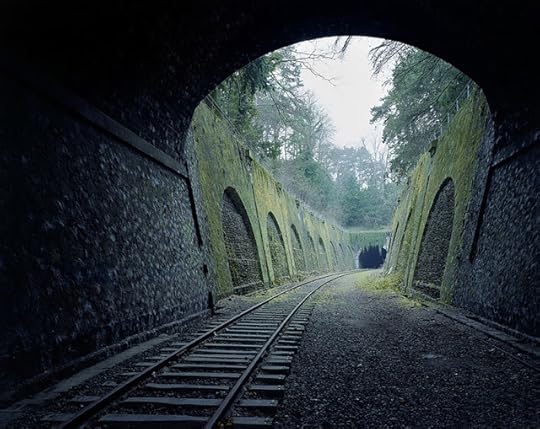

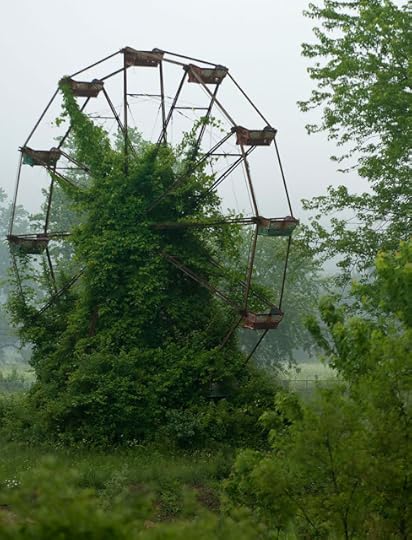





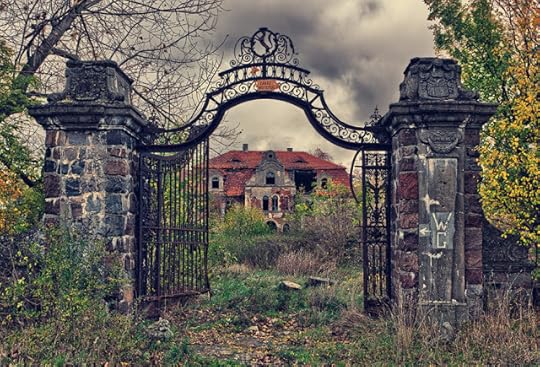

Clancy's comment: Imagine the history behind these places.
I'm ...


June 30, 2021
16 August 2021 - WORLD'S LARGEST BONFIRE MADE OF PALLETS - NORWAY

WORLD'S LARGEST BONFIRE
MADE OF PALLETS - NORWAY
G'day folks,
On and around the 24th of June every year, you will find the people in Alesund, Norway stacking pallets. This unique and seemingly dangerous tradition is how the people of this city celebrate midsummer. Sankthans, or ‘Midsummer’, is a festival held every year on June 24th in commemoration of John the Baptist’s birth. The day is celebrated in Scandinavian countries and other parts of Europe. These people risk their health, and even their lives to help assemble The craziest bonfire stack I have ever seen. Check out the pictures of what happens when they get done stacking pallets. They stack them until it reaches an astonishing 130 feet high.







Clancy's comment: Extraordinary, but very dangerous.
I'm ...


June 29, 2021
15 August 2021 - CLARENCE BIRDSEYE - THE FATHER OF FROZEN FOOD
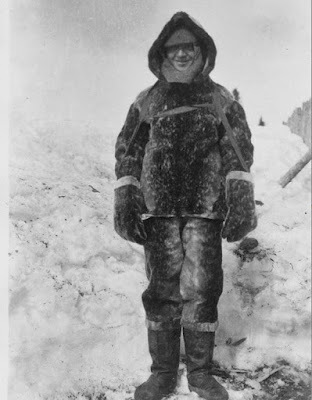
CLARENCE BIRDSEYE
- THE FATHER OF FROZEN FOOD -
G'day folks,
Birds Eye frozen food went on sale for the first time in 1930 – restricted to 18 stores in Springfield, Massachusetts. The owners, the Goldman Sachs Trading Company, wanted to see how the public would take to this novel idea of offering food for sale.
A year earlier, Goldman had paid $22 million to Clarence Birdseye, the inventor of the process, to secure his trademarks and patents.
This was wealth beyond dreams for 43-year-old New York-born Clarence who had begun his career working as a taxidermist. After jobs in Arizona and New Mexico as an assistant naturalist he moved in 1912 to Labrador – now in Canada – to work as a fur trapper and to carry out a fish and wildlife survey.
It was the fish element of his work that was to change his destiny and lead to the creation of a worldwide business.
Indigenous Canadians at Labrador showed Clarence how they caught fish then preserved them under very thick layers of ice. He was intrigued to see that the fish iced rapidly in the -40C temperature.
He was even more intrigued to discover that the fish tasted fresh when later thawed. Hooked, he could see business opportunities ahead.
He read all he could find about the art of freezing fish, then set up his own company called Birdseye Seafoods Incorporated. He used air chilled to -43C to freeze fish fillets, but consumers gave the product the cold shoulder and in 1924 the company had to file for bankruptcy.
As inventive as he was determined, Birdseye immediately created a new quick-freezing process that involved freezing cartons of fish under pressure between two refrigerated surfaces. The process proved to be commercially viable and he formed a new company, General Seafood Corporation, to develop it.

Ever busy and inventive, Birdseye then came up with another new invention which he called the double belt freezer and this marked the beginning of the flourishing frozen foods industry.
In 1927, he started flash-freezing other food, taking in vegetables, chicken, meat, and fruit.
After the Goldman-Sachs Trading Corporation and the Postum Company (later the General Foods Corporation) bought out Birdseye in 1929 his name was kept as a trademark but split into two words: “Birds Eye”.
The first quick-frozen vegetables, fruit, seafoods, and meat were sold for the first time in 1930 in Springfield under the trade name Birds Eye Frosted Foods.
Refrigerated grocery display cases made their appearance later that year. Another major leap forward came in 1944 with the introduction of refrigerated boxcars to transport the frozen foods by rail nationwide.
National distribution had become a reality and Birdseye had become a legend. Today, frozen food is a multi-billion dollar industry and Birds Eye, the leading brand, is sold almost everywhere.
Clarence Birdseye died of a heart attack in October, 1956. He was 69.

Clancy's comment: I have some of his frozen peas in my freezer.
I'm ...


June 28, 2021
10 August 2021 - THE DAY CHARLIE CHAPLIN WAS KNIGHTED
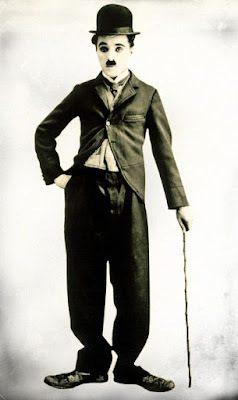
THE DAY CHARLIE
CHAPLIN WAS KNIGHTED
G'day folks,
Charlie Chaplin was knighted at Buckingham Palace in 1975 - to become Sir Charles Spencer Chaplin KBE. He was 85 at the time and had to be pushed in a wheelchair to meet the Queen who performed the ceremony.
Fans of the British-born comic actor had been pressing for such recognition over many years, but controversy in his past life kept Charlie off the roll of honour.
Foreign Office papers from 1956, which were kept secret until 2002, revealed that the silent screen star’s knighthood had been shelved partly because he was considered to be a communist sympathiser.
Officials in his adopted home of the United States certainly thought so. Questions about his political allegiances began in the 1940s and continued until 1952 when his US visa was revoked. He then went to live in Switzerland where he spent the rest of his days.
It was his personal life that also raised eyebrows among the Establishment in Britain. Charlie was known to have had affairs with a number of actresses and had twice taken a 16-year-old bride.
After his third marriage ended in 1942, actress Joan Barry launched a paternity suit. Tests proved Chaplin was not the father of her daughter, but he was still ordered to pay child support and the case left a stain on his character.
Chaplin will be forever remembered, though, as the lovable slapstick tramp with a bowler hat and cane who acrobatted his way through a host of silent films, becoming in the process one of the world’s first superstars.
It would all have seemed highly improbable back in the 1880s. Shortly after he was born in London at that time Charlie was abandoned by his hard-drinking father and lived in poverty for much of his childhood, sometimes forced to stay in one of the notorious workhouses.
But he inherited a love of the stage from his mother, a music hall singer, and was to recall years later: “I was a news vendor, printer, toymaker, doctor's boy, etc., but during these occupational digressions, I never lost sight of my ultimate aim to become an actor.
“So, between jobs, I would polish my shoes, brush my clothes, put on a clean collar and make periodic calls at a theatrical agency.”
It led, in 1897, to work with a clog-dancing troupe, then to his acting debut as a pageboy in a production of Sherlock Holmes. In 1908, aged 19, he joined the prestigious Fred Karno pantomime troupe, which took him to America. There he was spotted by film producer Mack Sennett, who signed Chaplin to a contract for $150 a week.
There was no stopping him now and by the age of 26 Chaplin was a superstar earning a massive $670,000 a year.

Twenty years after being thrown out of the United States, forces were at work in Hollywood to recognise his talent and contribution to the film industry. So in 1972 he received an Honorary Academy Award for “the incalculable effect he has had in making motion pictures the art form of this century”.
It must have given him great satisfaction – but perhaps not as much as the knighthood awarded in 1975. Chaplin said after the ceremony that the Queen had thanked him for what he had done and that his films had helped her a great deal.
He was, he confessed, “dumbfounded” by the occasion.
Within three years Sir Charles was dead. He suffered a stroke on Christmas Day, 1977, while asleep in his Swiss home. He was not, however, allowed to rest in peace. Three months after his death his coffin was dug up and stolen from its grave by two unemployed immigrants.
They demanded $400,000 for its return but were arrested 11 weeks later in a police operation and the coffin was found buried in a field nearby. It was re-interred at its original site, surrounded by reinforced concrete.
Who knows whether the master of slapstick comedy would have seen the funny side of that . . .

Clancy's comment: Well earned, Sir charlie!
I'm ...


June 27, 2021
7 August 2021 - THE 'BARONET' FROM WAGGA WAGGA, AUSTRALIA
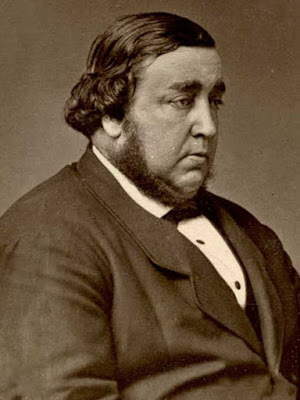
THE 'BARONET' FROM
WAGGA WAGGA, AUSTRALIA
G'day folks,
Arthur Orton, who became known as the Tichborne Claimant, was found guilty of perjury after the longest trial in English history.
The bizarre case, which gripped and fascinated society, involved the son of a butcher in London's East End, a missing English aristocrat, and the claims of a butcher from Wagga Wagga, Australia.
The Tichbornes were a prominent wealthy Catholic family whose stately home stood in rolling Hampshire farmland. In 1854, Roger Tichborne, heir to the Tichborne baronetcy, was presumed dead after a ship that he had boarded at Rio de Janeiro, the Bella, was lost at sea.
Around this time, Orton, the son of a London butcher, who went to sea as a boy, worked as a butcher and stockman for squatters in Australia.
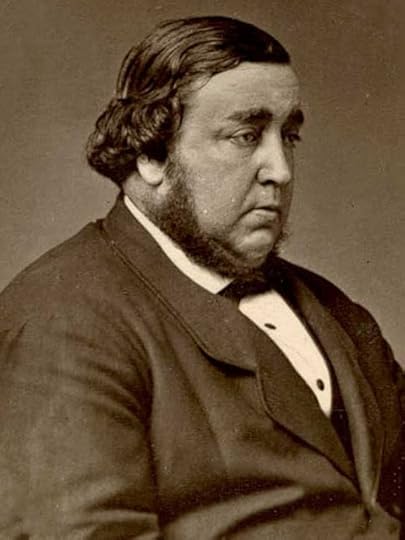
And it was here that a despairing Lady Tichborne, refusing to believe her son was dead, offered a reward in newspapers for information about his whereabouts. She had clung to rumours that some of the Bella passengers had made it to Australia.
In November 1865 she learnt through an agency in Sydney that a man answering the description of her son had been found at Wagga Wagga in Queensland. He went under the name of Thomas Castro and was working as a butcher.
She quickly made up her mind, with an eagerness that some said bordered on insanity, that this was her son. She implored him to leave Australia and he arrived in London on Christmas day 1866.
After paying a flying visit to Tichborne House the claimant met the dowager at a hotel room in Paris. She announced that she recognised him straight away.
Given the known facts, this declaration was startling. Roger Tichborne had been slight and delicate with narrow sloping shoulders, a long narrow face, and thin straight dark hair. Castro, though about the same height, was big-framed and burly, weighing about twenty-four stone. He had a large round face and lots of fair wavy hair.
Born and educated in France, Roger spoke and wrote French like a native but Castro did not know a word of French.
Nevertheless, Lady Tichborne apparently had no doubts. She lived under the same roof with him for weeks at a time, accepted his wife and children, and made him a generous allowance.
All to the fury of the rest of the family. He had failed to recognise any of them, or to recall any incidents in Roger's life. Castro was, they declared unanimously, an imposter trying to claim Roger's identity and the fortune that went with it.
There followed two of the longest trials in English history. The first, a civil trial, was officially an action for the ejectment of Colonel Lushington, the tenant of Tichborne Park. It was brought to establish the claimant’s identity as Roger Tichborne and his rights to the family estate.
Tichborne v. Lushington began in May 1871 and ended 102 days later in March 1872. Over one hundred people from every class swore to the claimant's identity. They were mostly perfectly genuine in their belief.
But after several members of the Tichborne family had been in the box, the jury declared that they required no further evidence and were prepared to reject the claimant's case. His lawyers then abandoned their suit. He was arrested for perjury and later tried in a criminal court under the name of Castro.
The criminal trial, Regina v. Castro, was equally long, from April 1873 until February 1874. But the jury deliberated for less than an hour before returning its verdict that the claimant was guilty of perjury for his testimony in the civil trial. They declared that he was not Roger Tichborne and identified him on the evidence as Arthur Orton. He was jailed for 14 years.

Clancy's comment: Interesting story, eh?
I'm ...





